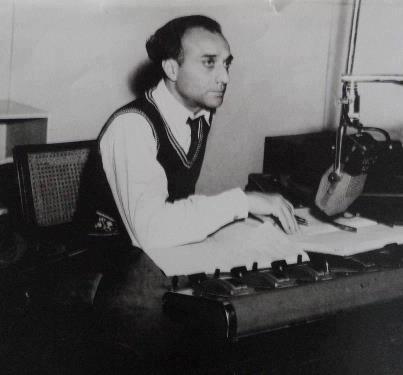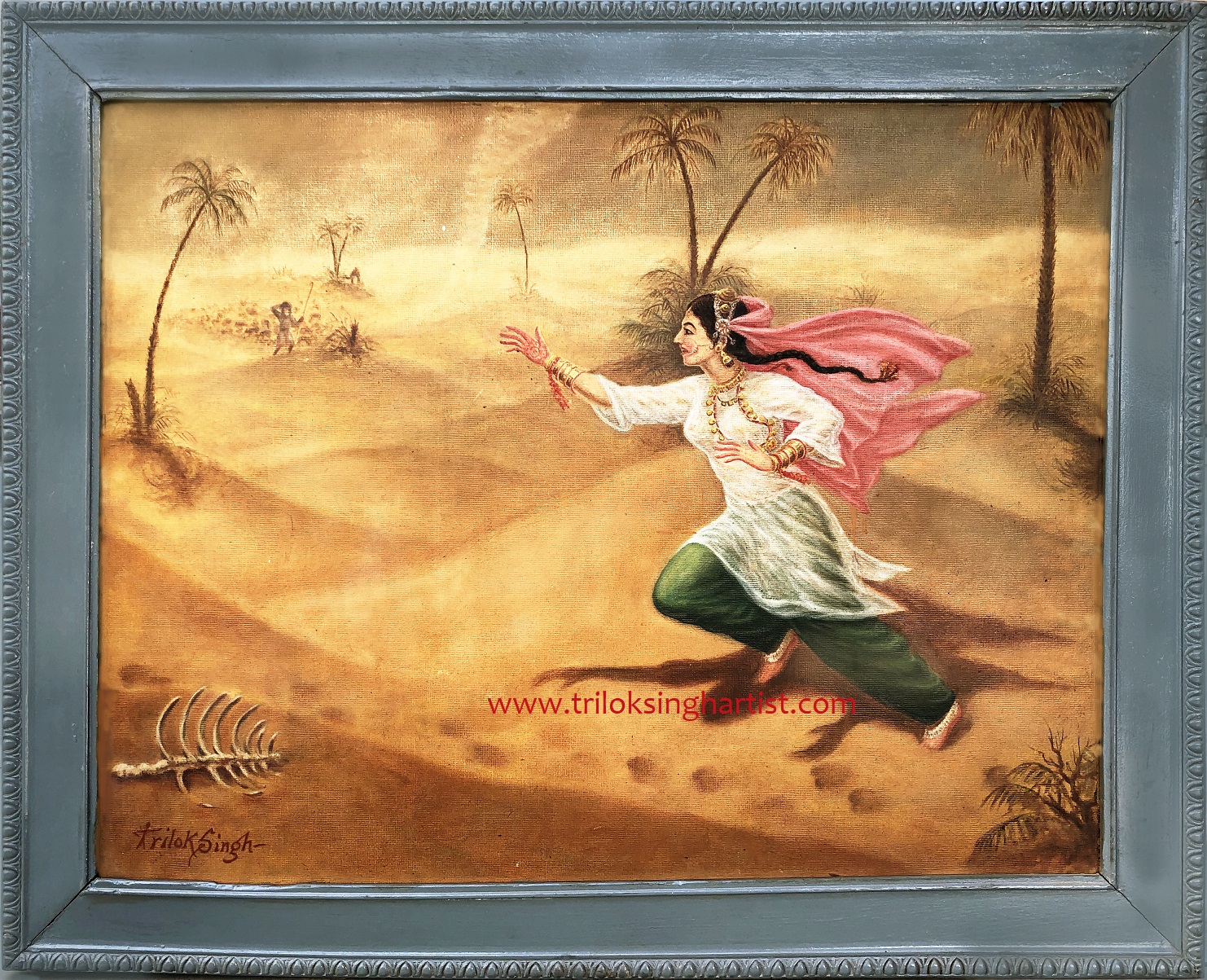|
Agha Saleem
Agha Saleem (born Agha Khalid Saleem; 7 April 1935 – 12 April 2016) was a Pakistani writer, novelist, playwright and poet. He work was primarily focused on fiction writing, novels, dramas, regional films and travel literature. He is also credited for translating Sindhi language books into Urdu and English language, including Shah Abdul Latif Bhittai's book titled ''Risalo''. He was born as Agha Khalid Saleem in Shikarpur, Sindh to a Pakhtun family. He did his primary schooling from a school in his hometown. In 1948, he went to Hyderabad and graduated from a public college called Government College Kali Mori (now Government College University Hyderabad) in 1958. He had two sons, including Agha Jamshed Khan and Agha Khudadad Khan and a daughter Agha Gul Zareen Khan. Literary career Agha started his career around 1957 to 1958. His first short story titled ''Ahh Ae Zalim Samaj'' (O, you cruel society) was published in 1958 when he graduated from the college. As a playwrig ... [...More Info...] [...Related Items...] OR: [Wikipedia] [Google] [Baidu] |
Shikarpur, Sindh
Shikarpur ( sd, شڪارپور and ) ') is city and the capital of Shikarpur District in Sindh province of Pakistan. It is situated about 29 km west of the right bank of the Indus, with a railway station, 37 km north-west of Sukkur. It is the 42nd largest city of Pakistan by population according to the 2017 census. History According to a few historians the city of Shikarpur was revived during the Kalhora rule and that was what brought about a turnaround in making it the financial capital of not only South Asia but also of Central Asia. Some people think that the city was founded by Kalhoras' cousins Daudpotas --- and it was named Shikarpur because the Talpur Mirs were fond of shikar (hunting). Another school of thought believes Shikarpur was admittedly there before the shikar-loving Talpurs arrived on the scene; for another, Shikarpur has always been a trading and banking center, and never a hunting lodge. Some experts think that Shikarpur is really Shakaripur --- the ... [...More Info...] [...Related Items...] OR: [Wikipedia] [Google] [Baidu] |
Radio Pakistan
Radio Pakistan serves as the national public broadcaster for radio in Pakistan. Although some local stations predate Radio Pakistan's founding, it is the oldest existing broadcasting network in Pakistan. The network was established on 14 August 1947, following Pakistan's independence from Britain. Radio Pakistan services include AM news services and FM 101 (music) and FM 93. History Radio Pakistan was originally known as the ''Pakistan Broadcasting Service'' at the time of its inception on 14 August 1947. It had the honour of publicly announcing Pakistan's independence from Britain on 13 August 1947 at 11:59 pm. Mustafa Ali Hamdani made the announcement from Lahore in Urdu and English, while Abdullah Jan Maghmoom made the announcement from Peshawar in Pashto. The announcement was heard as follows: The English translation of this announcement is as follows: Greetings Pakistan Broadcasting Service. We are speaking from Lahore. The night between the thirteenth an ... [...More Info...] [...Related Items...] OR: [Wikipedia] [Google] [Baidu] |
Sindhi Literature
Sindhi literature ( sd, سنڌي ادب), is the composition of oral and written scripts and texts in the Sindhi language in the form of prose: (romantic tales, and epic stores) and poetry: (Ghazal, Wai and Nazm). The Sindhi language of the province of Sindh in Pakistan is considered to be the one of the oldest languages of Ancient India, due to the influence on the language of Indus Valley inhabitants. Sindhi literature has developed over a thousand years. According to the historians, Nabi Bux Baloch, Rasool Bux Palijo, and GM Syed, Sindhi had a great influence on the Hindi language in pre-Islamic times. Nevertheless, after the advent of Islam in eighth century, Arabic language and Persian language influenced the inhabitants of the area and were the official language of territory through different periods. Shah Abdul Latif Bhittai, Shah Abdul Karim Bulri, Shaikh Ayaz and Ustad Bukhari are important poets writing in Sindhi. History Early Period (712-1030) Before Arabs, ... [...More Info...] [...Related Items...] OR: [Wikipedia] [Google] [Baidu] |
Muhammad Ali Jinnah
Muhammad Ali Jinnah (, ; born Mahomedali Jinnahbhai; 25 December 1876 – 11 September 1948) was a barrister, politician, and the founder of Pakistan. Jinnah served as the leader of the All-India Muslim League from 1913 until the inception of Pakistan on 14 August 1947, and then as the Dominion of Pakistan's first Governor-General of Pakistan, governor-general until his death. Born at Wazir Mansion in Karachi, Jinnah was trained as a barrister at Lincoln's Inn in London. Upon his return to British Raj, India, he enrolled at the Bombay High Court, and took an interest in national politics, which eventually replaced his legal practice. Jinnah rose to prominence in the Indian National Congress in the first two decades of the 20th century. In these early years of his political career, Jinnah advocated Hindu–Muslim unity, helping to shape the 1916 Lucknow Pact between the Congress and the All-India Muslim League, in which Jinnah had also become prominent. Jinnah beca ... [...More Info...] [...Related Items...] OR: [Wikipedia] [Google] [Baidu] |
Martial Law
Martial law is the imposition of direct military control of normal civil functions or suspension of civil law by a government, especially in response to an emergency where civil forces are overwhelmed, or in an occupied territory. Use Martial law can be used by governments to enforce their rule over the public, as seen in multiple countries listed below. Such incidents may occur after a coup d'état ( Thailand in 2006 and 2014, and Egypt in 2013); when threatened by popular protest (China, Tiananmen Square protests of 1989); to suppress political opposition ( martial law in Poland in 1981); or to stabilize insurrections or perceived insurrections. Martial law may be declared in cases of major natural disasters; however, most countries use a different legal construct, such as a state of emergency. Martial law has also been imposed during conflicts, and in cases of occupations, where the absence of any other civil government provides for an unstable population. Examples of ... [...More Info...] [...Related Items...] OR: [Wikipedia] [Google] [Baidu] |
Daily Sach
''Daily Sach'' (''SACH'') is an Indian Urdu-language daily newspaper published from Jammu, India founded in 1940 by Raja Mohammad Akbar Khan with roots in the Indian independence movement ("SACH" means Truth in Urdu), it was established with a principle to publish the news and aware the people of United India about the historical changes that were taking place in the British Indian Empire. It is now owned and published by Sach Group, which is owned by Krishan Lal Gupta.http://www.pressclubofjammu.com/member.html History 19th century ''Daily Sach'' was founded in 1940 in Mirpur, PoK by Raja Mohammad Akbar Khan, during Indian independence movement under British Raj, and was published weekly. It contained news from India and the world, as well as the Indian Subcontinent The Indian subcontinent is a list of the physiographic regions of the world, physiographical region in United Nations geoscheme for Asia#Southern Asia, Southern Asia. It is situated on the Indian Plate, proj ... [...More Info...] [...Related Items...] OR: [Wikipedia] [Google] [Baidu] |
Mass Mobilisation
Mass mobilization (also known as social mobilization or popular mobilization) refers to mobilization of civilian population as part of contentious politics. Mass mobilization is defined as a process that engages and motivates a wide range of partners and allies at national and local levels to raise awareness of and demand for a particular development objective through face-to-face dialogue. Members of institutions, community networks, civic and religious groups and others work in a coordinated way to reach specific groups of people for dialogue with planned messages. In other words, social mobilization seeks to facilitate change through a range of players engaged in interrelated and complementary efforts. The process usually takes the form of large public gatherings such as mass meetings, marches, parades, processions and demonstrations. Those gatherings usually are part of a protest action. Mass mobilization is often used by grassroots-based social movements, including revolutiona ... [...More Info...] [...Related Items...] OR: [Wikipedia] [Google] [Baidu] |
Contentious Politics
Contentious politics is the use of disruptive techniques to make a political point, or to change government policy. Examples of such techniques are actions that disturb the normal activities of society such as demonstrations, general strike action, direct action, riot, terrorism, civil disobedience, and even revolution or insurrection. Social movements often engage in contentious politics. The concept distinguishes these forms of contention from the everyday acts of resistance explored by James C. Scott, interstate warfare, and forms of contention employed entirely within institutional settings, such as elections or sports. Historical sociologist Charles Tilly defines contentious politics as "interactions in which actors make claims bearing on someone else's interest, in which governments appear either as targets, initiators of claims, or third parties." Contentious politics has existed forever, but its form varies over time and space. For example, Tilly argues that the nature of ... [...More Info...] [...Related Items...] OR: [Wikipedia] [Google] [Baidu] |
Government Of Pakistan
The Government of Pakistan ( ur, , translit=hakúmat-e pákistán) abbreviated as GoP, is a federal government established by the Constitution of Pakistan as a constituted governing authority of the Administrative units of Pakistan, four provinces, two autonomous territories, and one federal territory of a Parliamentary democracy, parliamentary democratic Parliamentary republic, republic, constitutionally called the Pakistan, Islamic Republic of Pakistan. Effecting the Westminster system for governing the state, the government is mainly composed of the Executive branch, executive, Legislative branch, legislative, and Judicial branch, judicial branches, in which all powers are vested by the Constitution of Pakistan, Constitution in the Parliament of Pakistan, Parliament, the Prime Minister of Pakistan, Prime Minister and the Supreme Court of Pakistan, Supreme Court. The powers and duties of these branches are further defined by acts and amendments of the Parliament, including the ... [...More Info...] [...Related Items...] OR: [Wikipedia] [Google] [Baidu] |
One Unit
The One Unit Scheme ( ur, ; bn, এক ইউনিট ব্যবস্থা) was a geopolitical programme launched by the Government of Pakistan led by Prime Minister Muhammad Ali Bogra on 22 November 1954 and passed on 30 September 1955. The government claimed that the programme would overcome the difficulty of administering the two unequal polities of West and East Pakistan separated from each other by more than a thousand miles. To diminish the differences between the two regions, the 'One Unit' programme merged the four provinces of West Pakistan (West Punjab, Sind, NWFP & Baluchistan) into a single province to parallel the province of East Pakistan (now Bangladesh). Pakistani scholars and researchers maintain that the One Unit programme was viewed as a counterbalance against the political and population domination of the ethnic Bengali population of East Pakistan. The One Unit program was met with great resistance and grievances were raised by the four provinces sin ... [...More Info...] [...Related Items...] OR: [Wikipedia] [Google] [Baidu] |
Partition Of India
The Partition of British India in 1947 was the Partition (politics), change of political borders and the division of other assets that accompanied the dissolution of the British Raj in South Asia and the creation of two independent dominions: Dominion of India, India and Dominion of Pakistan, Pakistan. The Dominion of India is today the India, Republic of India, and the Dominion of Pakistan—which at the time comprised two regions lying on either side of India—is now the Pakistan, Islamic Republic of Pakistan and the Bangladesh, People's Republic of Bangladesh. The partition was outlined in the Indian Independence Act 1947. The change of political borders notably included the division of two provinces of British India, Bengal Presidency, Bengal and Punjab Province (British India), Punjab. The majority Muslim districts in these provinces were awarded to Pakistan and the majority non-Muslim to India. The other assets that were divided included the British Indian Army, ... [...More Info...] [...Related Items...] OR: [Wikipedia] [Google] [Baidu] |




